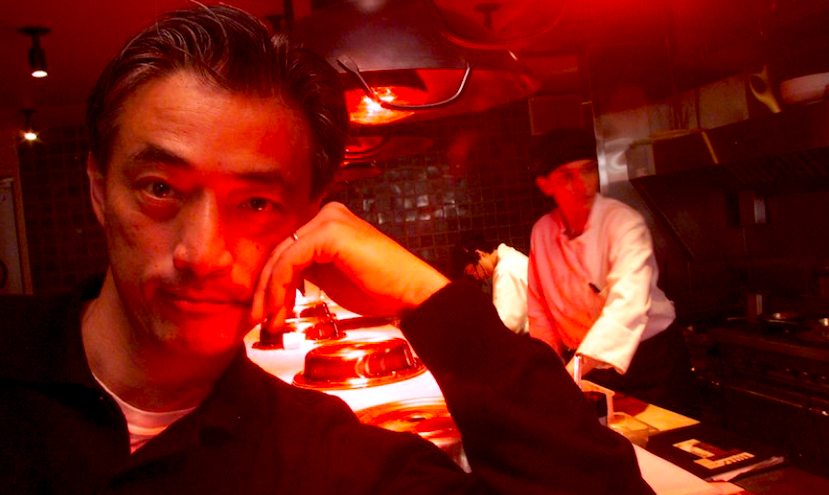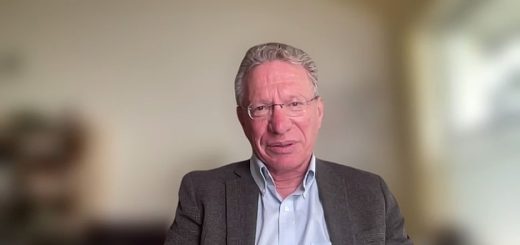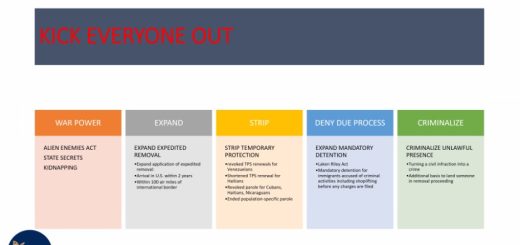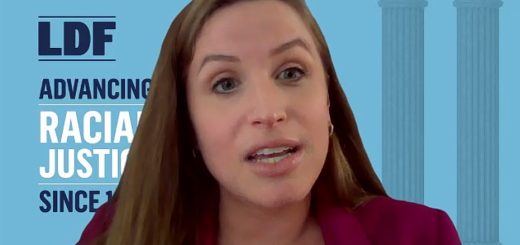朱利安·雷:我的父亲
作者:朱利安·雷 (雷祖威之子, Julian (Jules) Louie)于 2018 年 10 月 25 日 雷祖威纪怀念会
翻译: 王荃 (PhD candidate, Comparative/World Literature, Peking University 北京大学比较文学/世界文学准博士)

雷祖威 (David Wong Louie)
我父亲曾告诉我:写你所知道的。那时,一场职场危机令我“伤筋动骨”,我 趁着圣诞节回洛杉矶“疗伤”。就在那次探亲的某个时刻,我告诉他我想转行去写 剧本。这当然是不明智的选择,与其说这是我的雄心壮志不如说是自我鞭策式的自 欺之举。我记得当时我挨着父亲坐在床上,本以为会因“妄言”招来父亲的一记白 眼,不想他却在平板电脑上潦草地写下:写你所知道的。他随后解释说,他指的是 我应该写写我所经历的职场危机,因为那其中荒诞滑稽的细节甚至令他也感到震惊, 如果能够将那些写下来显然会成为我“新事业”不错的起点。虽然此后我并未把这 剧本写下,但是他的话却深深地刻在我心里。
这是差不多两年前的事情了。最近几个星期,为他的纪念会写点东西似乎成为 不可能完成的事儿,千言万语涌上心头却发现无从下笔。因为与失去他的痛楚相比, 一切言辞都显得苍白无力。我回想与他相处的每分每秒,他影像变换的每帧每幅: 一餐饭,一次旅行,一个玩笑。但我似乎看不清他,看不清全部的他,连我与他在 一起的时光也都那么模糊不清。每当我试图回忆起那个身为父亲的他,那个身为男 人的他,我总是抓不住一丝头绪。就彷佛是看天上的昂宿星座一样:当你凝视星星 时,它们耀眼的光芒总会模糊你的视线;当你让它们在你视线外围闪烁时,又总有 几缕光亮闪耀在你的眼底。
几天前,在飞往洛杉矶的航班上,我重读了他那与文集齐名的故事——“爱的 彷徨”。故事中那些熟悉的场景纷至沓来,触动着我的心。毫无疑问,这是一个虚构 的故事,但是对我来说,读这些故事就犹如在湍流之中瞥见我自己的倒影——总有 些熟识的影像闪过。庞夫人笑意盈盈时露出的金牙冠,叙述者的弟弟和他的两座敞 篷车,装着虾饺的船型纸垫……当然,我享有特别优势:我知道运用到故事中的源 素材,还可以指出它们现实生活中的参照物。许多人都不曾从这个角度感受过这些 故事。以前懵懂无感,现在我终于明白了:虽然这些故事是他创作出来的,但是他 是从他所知道的生活写起。一个男人的一生, 似真似幻。和他并肩坐在床上的记忆 又一次浮现在我的眼前。因此,我将听从他的建议。虽然我不具备凝练他神髓的能 力,也不能够概述他的一生,但是至少我可以写我所知道的:
我知道,我父亲总是认真的对待我。从我最初的记忆到我们最后的谈话。他总 会真正倾听我所说的话,并且他的回应总会让我感到自己是被珍惜的,被认可的, 被重视的。为此,我永远都心怀感念。
我知道,我俩总有一种共同的荒谬,独特和他人无法理解的幽默感,我记得我 时常和他一起疯疯癫癫,不时狂笑至一发不可收拾。孩童时代最大的成就感莫过于 逗得他笑出眼泪。
我知道,在那最美的时光里,我们在威尼斯海边的家就像一个小小的太阳系, 而大威就是我们围绕着的太阳,我们沐浴在他的温暖,魅力和智慧之中。
我也知道, 在他生病那些糟心的日子里,他仍旧是那个太阳。即便是在他被疾病的混乱与恐惧 所侵扰的日子里,他依旧引航着我们生活,始终保持我们生活在轨且抱团向心。
我知道,每当我看到维米尔画中的那一抹蓝或是天竺葵的那一片红时,我会想 起他。
我知道,尽管我曾认真做过笔记也曾无数次给他做过帮厨,但是我做的鸡肉蘸 汁永远也做不出他做的味道。
我知道,我已经完全掌握了他粤式蒸鱼的秘方,而我余生也会一直做这道菜。
我知道,能让他给我做一餐饭是最好不过的事。
我知道,我愿倾其所去和他一起再做一次饭。
我知道,去年圣诞节,当我妹妹说她想吃鸭肉意大利面时,父亲已太过虚弱疲 惫而不能亲手料理。当时我按照父亲的秘方调制酱料,一心只为让妹妹和杰姬吃饱 与满足。当我把调好的酱汁装在碗里端进卧室给他尝我的手艺时,他对我竖起了大 拇指,刹那间我感到无比自豪。
我知道,通过遗传和教养,我继承并在潜移默化中接受了他有关烹饪以及家庭 的所有方式,我开始拼凑我认为他一直以来都在表达的心意:食物是某种情感通道。 它是沟通,联系和示爱的一种方式。有时,食物是比言语更为自然且自由的表达方 式。
这些事情都是我确实知道的。其余的至今仍是一片模糊。因为我的父亲是作家, 所以我将以他的文字作结。更重要的是他早已将我想说的话写了出来。虽然这让我 看起来像抄袭,但我想他不会介意。在他故事集(初版)的最后一页有一篇致谢, 最后一段是写给我的:“最后,最重要的是,这是一本关于家与爱的书。如果没有 我的儿子——朱尔,我无法写出这本书,至少它不会是以如今的面貌呈现在读者面 前。是我的儿子朱尔教会我尊重家庭以及如何去爱。” 我认为他教会我同样的东西。
Julian Louie – David Wong Louie Memorial October 25 2018
My father once told me to write what I know. I had just gone through a traumatic professional crisis and was out in Los Angeles for Christmas. At some point during that visit I told him I wanted to switch careers and write a screenplay, which was completely ill-advised and more a symptom of my flailing than any real ambition. I remember I was sitting next to him on the bed, and instead of rolling his eyes, which would have been the appropriate response, he scrawled out this sentence on his tablet: write what you know. He explained that he was referring to my recent job catastrophe, the details of which were pretty ludicrous and struck him as an obvious and promising starting point for my nascent screenwriting endeavor. I never did write the screenplay, but his words stuck with me.
That was almost two years ago. In these last weeks, writing something to say at his memorial has seemed so impossible and so freighted that I haven’t been able to figure out a point of entry. In the enormity of losing him, everything feels diffuse. I recall moments with him, images of him: a meal, a trip, a joke. But I can’t seem to see him— all of him, my life with him—clearly. When I try to think back on who he was as a father, as a man, I can’t get a grasp on him; it’s like looking at the Pleiades constellation— gaze at the stars directly and you lose them, but let them flicker on the periphery of your vision and you can pick out a few of the lights.
On the flight out here a couple days ago, I re-read his story Pangs of Love. I was struck again by how familiar parts of it feel. There’s no doubt it’s fiction, but for me reading that story is like seeing my reflection in fast-moving water—I can pick out a few recognizable details. The image of seeing Mrs. Pang’s gold crowns when she laughs.
The narrator’s brother with his 2-seater convertible. The paper boats of shrimp dumplings. Of course, I’m in a privileged position: I know the source material, can spot the reference. Most people don’t experience the story that way. But now I get it: it was invented, but he started with what he knew. One man’s life, real and imagined. And that memory of sitting on the bed with him came back to me. So I will take his advice. I may not be equipped to sum anything up, nor can I get a read on the big picture, but at least I can write what I know:
I know that my father always took me seriously. From my earliest memories up to our very last conversation. He would really listen to what I was saying and respond in a way that made me feel so worthwhile, and legitimate, and important. And for that I’m forever grateful.
I know we also had an absurd, insular, inexplicable shared sense of humor, and I remember often dissolving into hysterics with him. I’m not sure if I ever felt a bigger sense of accomplishment as a kid than when I made him laugh so hard he cried.
I know that in the best times our household in Venice seemed like a little solar system, and David was the sun around whom we would orbit, basking in his warmth and charisma and intelligence. I also know that in the worst times of his illness he was still that same sun, and as we all navigated our diverging trajectories in the chaos and terror of disease, he’d still keep us on track, keep us centered.
I know that when I see the blue of a Vermeer or the red of a geranium I will think of him.
I know that, despite careful note-taking and numerous stints as his sous-chef, I will still never be able to make his chicken marinade exactly as he did.
I know that I have mastered his Cantonese steamed fish, and I will make that dish for the rest of my life.
I know that having him cook for me was just the best.
I know that I would give anything to be able to cook with him one more time.
I know that last Christmas, when my sister requested duck ragú pasta for dinner and my dad was too weak and tired to cook it himself, all I wanted was to do that recipe justice, to please and nourish Sogna and Jackie, and that when I brought a bowl into the bedroom to show my dad my handiwork and he gave me his big thumbs up, I’ve never been prouder.
I know that, through both nature and nurture, I have inherited and osmosed all these ideas from him about cooking and family, and am just starting to piece together what I think he understood all along: that food is some sort of emotional conduit, a way of communicating and connecting and loving that sometimes comes more naturally or can be expressed more freely than words.
I know all these things for certain. The rest is, as of yet, a blur. So since my father was the writer, I’m going to finish with his words, since he already wrote what I guess I wanted to say in the first place. Total thievery, but I think he’d be ok with it. At the end of his novel is a page of acknowledgements. The final one is for me. It reads: “Last, more than anything else, this book is about family and love. I could not have written such a narrative, at least in its present form, without my son, Jules, who taught me to respect family and how to love.” I would say he taught me the same thing.




